Ever thought your bedroom could be throwing some serious shade about how safe—or unsafe—you really feel at home? It’s wild, right? You enter that supposed sanctuary only to find your body stuck in fight-or-flight mode, like a jittery squirrel on espresso. Whether it’s cluttered chaos on the nightstand or a bed shoved into a defensive corner, these sneaky signs can reveal emotional battles people are desperately hiding. And with Mercury messing around in retrograde, making everything a bit more intense and confusing, it’s no wonder some folks feel like their personal space is more Fort Knox than cozy retreat. Curious what red flags to watch for when you peek inside someone’s bedroom? Let’s unwrap the 11 telltale clues that scream, “I don’t feel as safe here as I want you to think!” LEARN MORE
Feeling unsafe, whether it’s physically or emotionally, at home is often associated with greater psychological distress. Even in the spaces where you’re supposed to be able to unwind and rest, your body is stuck in a chronic state of fight or flight, riddled with anxious thoughts and a constant flow of stress. While some people enjoy self-care in their spaces and rest peacefully in their beds at night, someone who’s feeling chronically emotionally unstable or unsafe grapples with restlessness and unease.
While these experiences can often be subtle and unsuspecting to the outside world, especially if the root of emotional turmoil is most prevalent at home, if you notice certain things in someone’s bedroom, they feel more unsafe than they want to admit. They may even isolate themselves in these spaces to cope with their turmoil, only exacerbating the distress they feel on the inside.
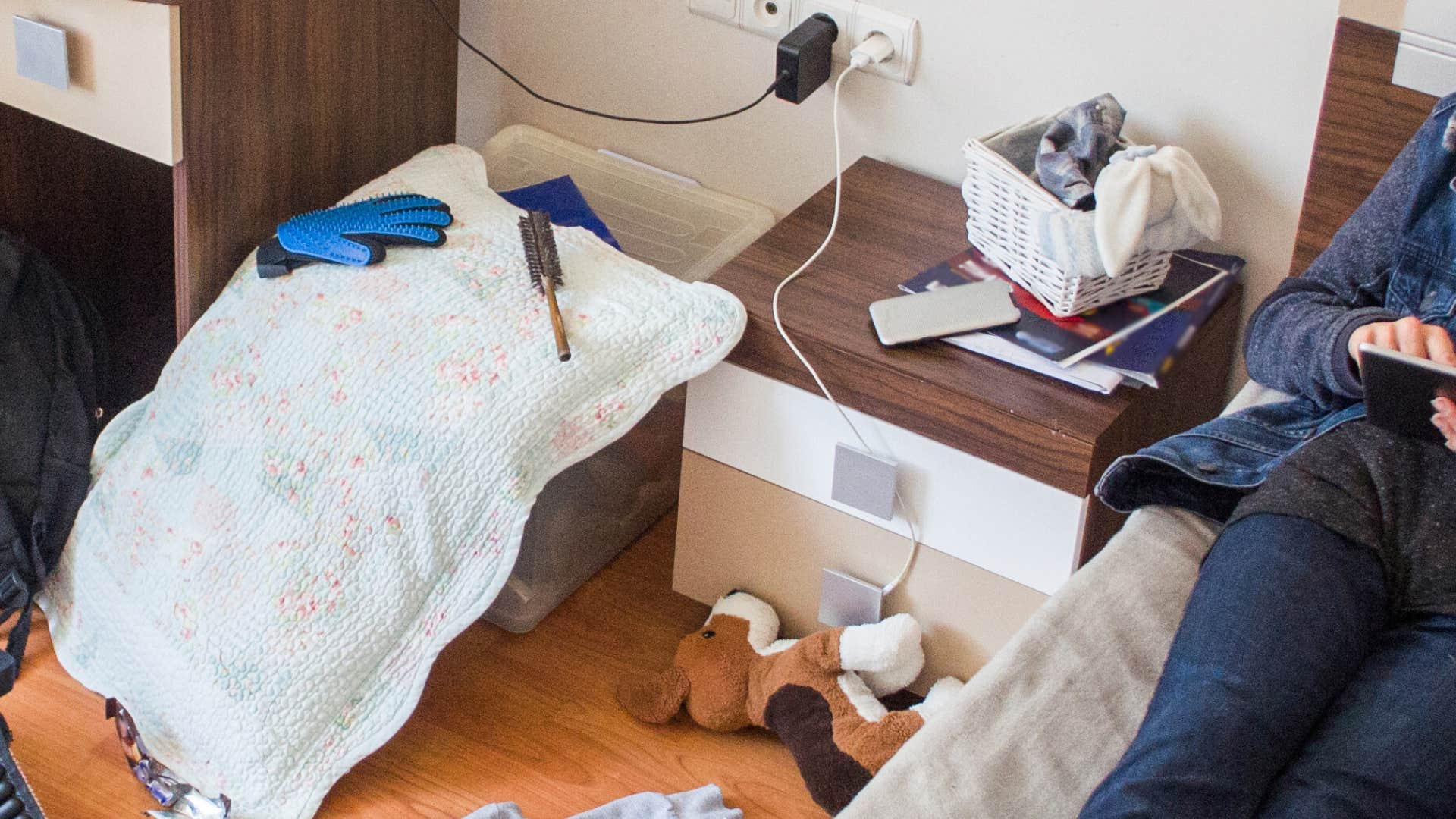 denozy from Getty Images
denozy from Getty Images
There are melatonin bottles scattered around, books they’ve been trying to read, trash from eating in bed, and a million other things that make it clear their bedroom isn’t only a space for rest and respite. A messy nightstand on its own isn’t necessarily a big deal. It could mean a person is disorganized or has a busy schedule.
However, if you notice one in someone’s bedroom along with other alarming emotional cues, it could be a sign that someone feels more unsafe than they want to admit. Messiness and clutter may be associated with poorer mental health, but this could also be a sign of someone who’s not getting enough sleep or who feels overly restless at night.
Advertisement
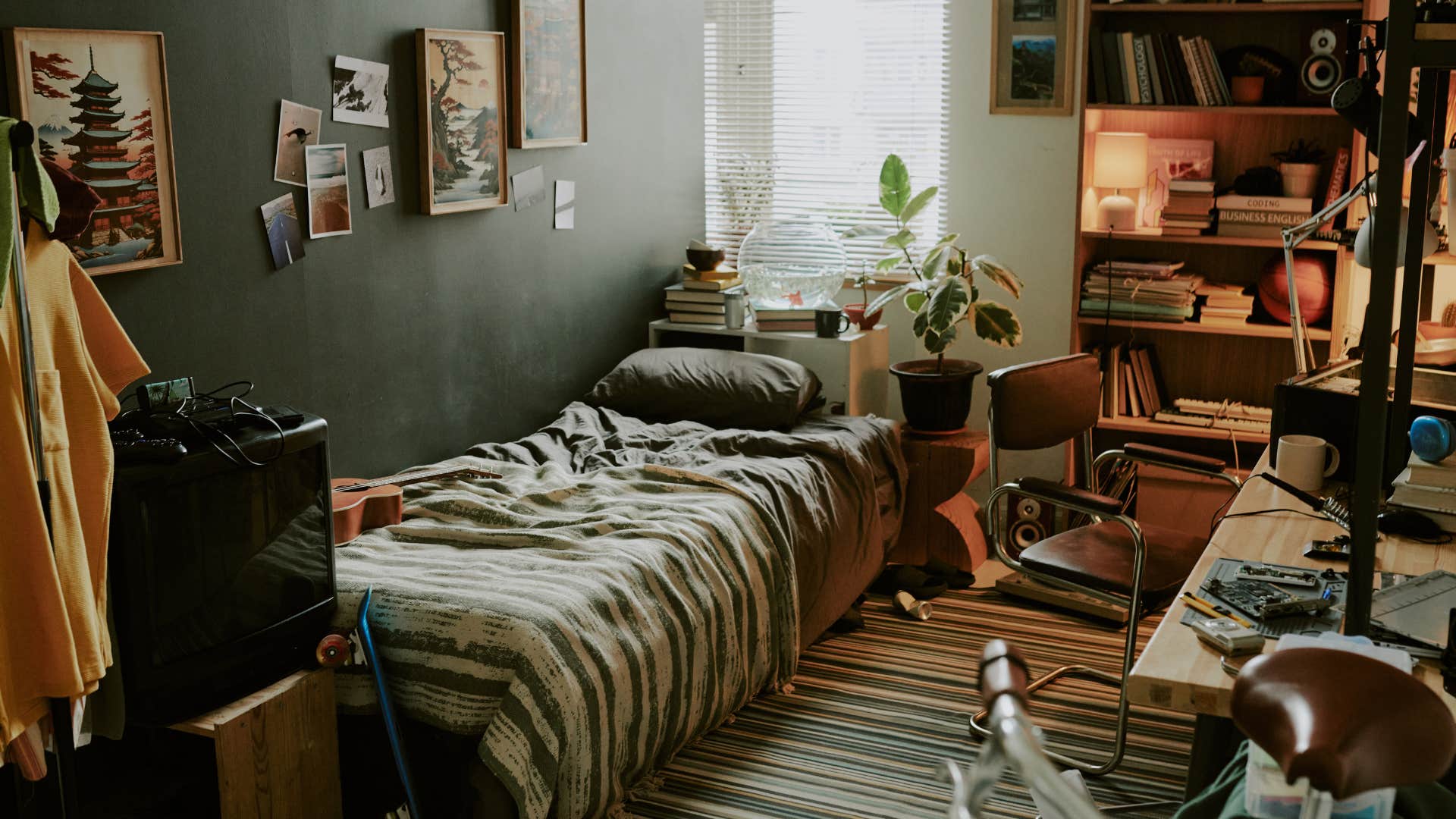 AnnaStills from Getty Images via Canva
AnnaStills from Getty Images via Canva
If someone’s bed is pushed willingly into the corner of their bedroom, chances are it’s more about comfort and safety than stylishness. When they’re lying in bed, they want to feel the comfort of the walls around them, rather than trying to sleep in the middle of their room.
In contrast to other unhealthy coping mechanisms, pushing a bed in the corner is one of the more innocent ways people seek comfort in their lives. So, if you notice it, they could feel more unsafe than they want to admit, or maybe, they’re just finding comfort in unsuspecting and helpful ways at home.
Advertisement
 Kali9 from Getty Images via Canva
Kali9 from Getty Images via Canva
Many people use mindless entertainment and their TVs as white noise to soothe them to sleep every single night. According to psychologist Chivonna Childs, it often helps people to unwind, distract them from racing thoughts, and cope with the loneliness of emotional distress or isolation.
So, if you notice this is happening in someone’s bedroom, they may feel more unsafe than they want to admit. It could be healthy coping mechanism, but depending on what they’re watching, it could also be one of the root causes of their emotional struggles.
“When you’re falling asleep, I would be very mindful of what you’re watching. Let’s watch something like a romance or a comedy,” Childs suggests. “I would avoid watching true crime. I would avoid watching any news because that can be anxiety-provoking. Watch something that makes you feel good at night.”
Advertisement
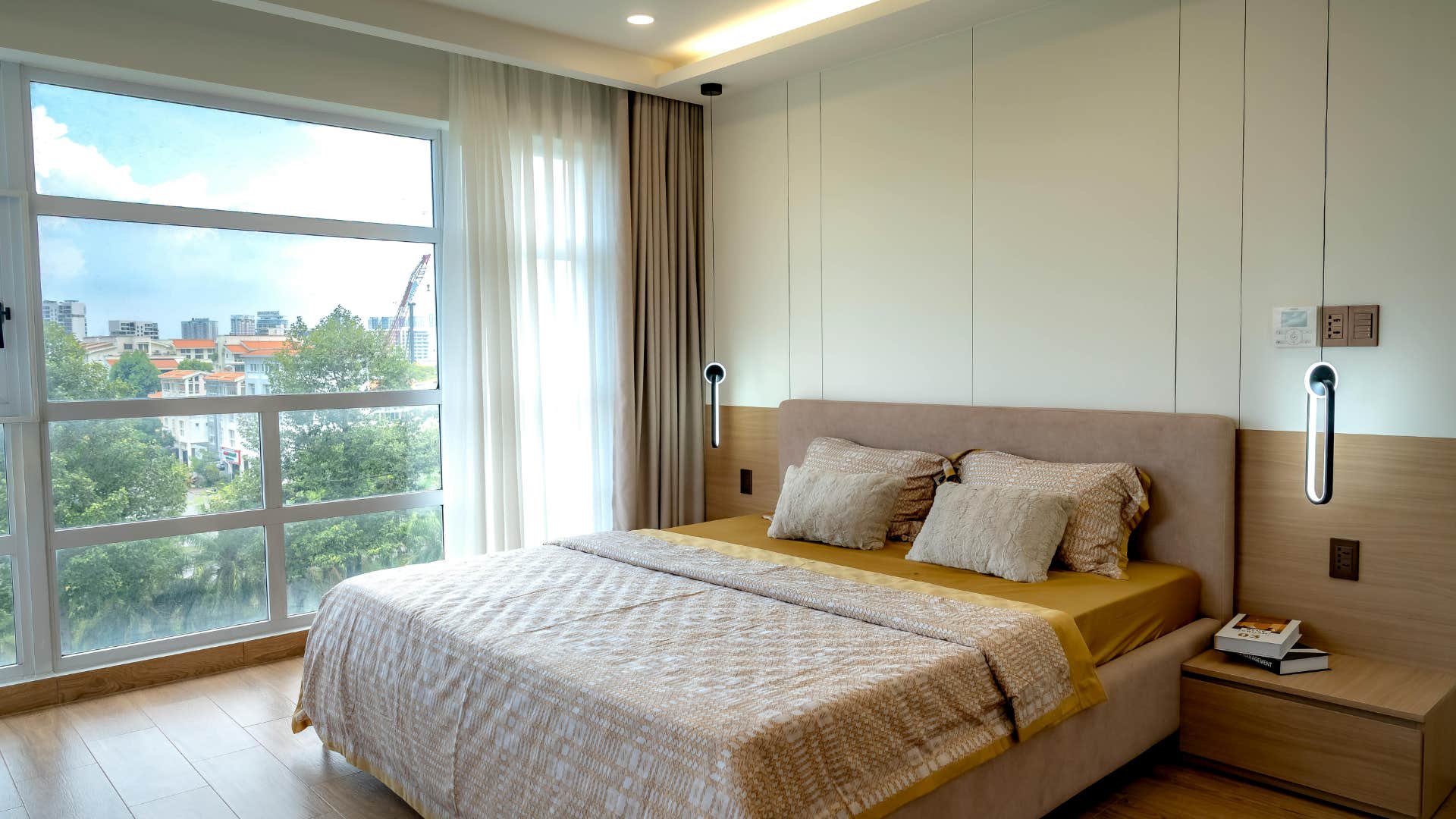 Quang Nguyen Vinh from Pexels via Canva
Quang Nguyen Vinh from Pexels via Canva
Filling your living space with things like personal hobbies, family photos, and decor that speaks to your identity can be incredibly beneficial for mental health. It gives you a space of belonging and often crafts safety for your mind and body to rest without stress.
However, if you notice there’s no personal flair or decor in someone’s bedroom, they may feel more unsafe than they want to admit. Maybe it’s an internal battle of identities and self-esteem. It could also be a symptom of a toxic relationship, where they don’t feel safe to fully be themselves at home.
Advertisement
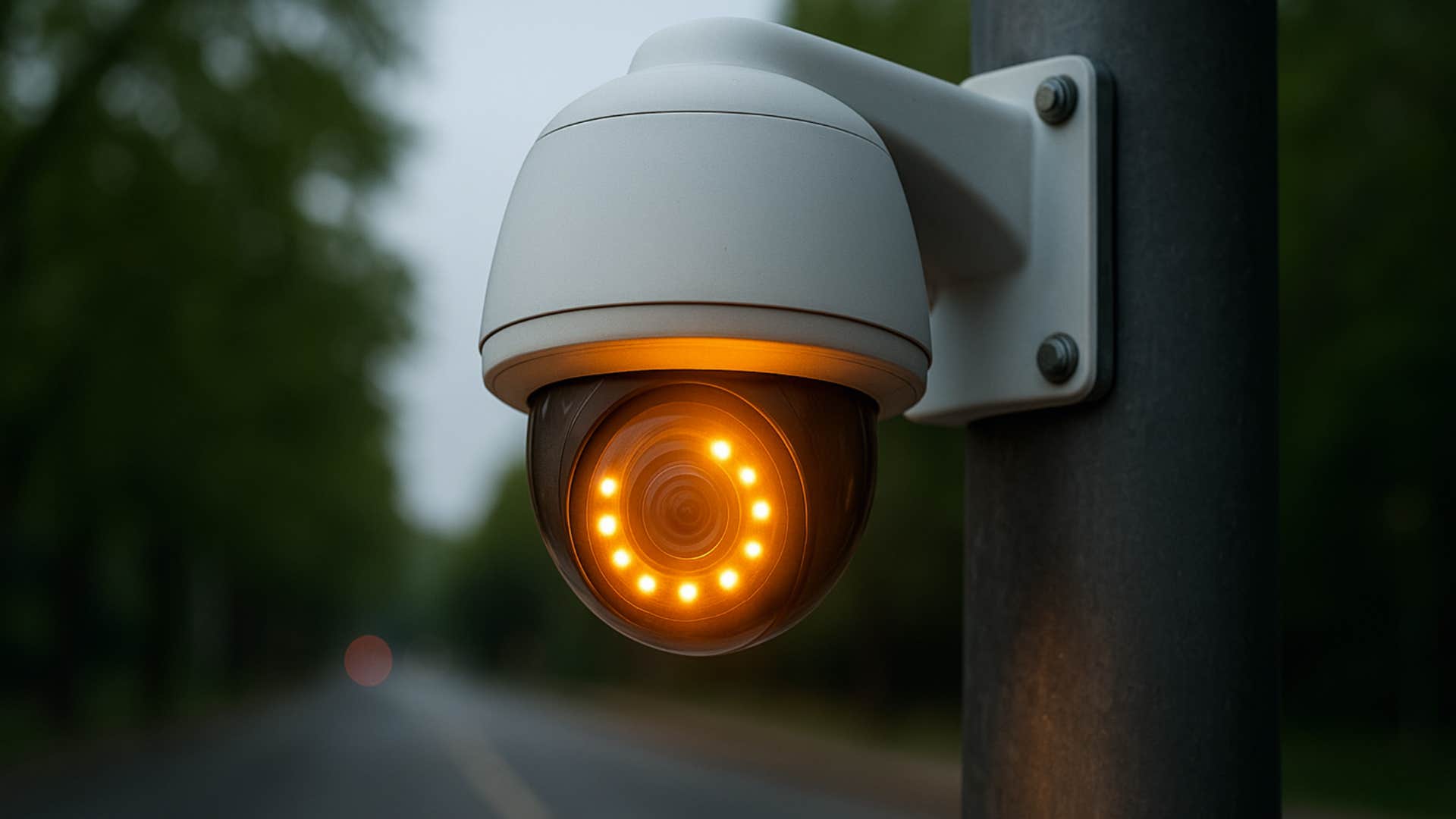 Muhamadqli from pixabay via Canva
Muhamadqli from pixabay via Canva
Whether it’s a Ring doorbell camera on their front porch or security cameras around their home, if you notice these devices or signs that someone is obsessively checking them in their bedroom, they may feel more unsafe than they want to admit.
Of course, there’s the physical safety aspect of living in a neighborhood that they perceive to be unsafe or fearing for personal safety in a shared home. However, emotional safety may also play a role if someone doesn’t feel safe to be themselves with toxic roommates or isolates themself to avoid conversations and social interactions.
Advertisement
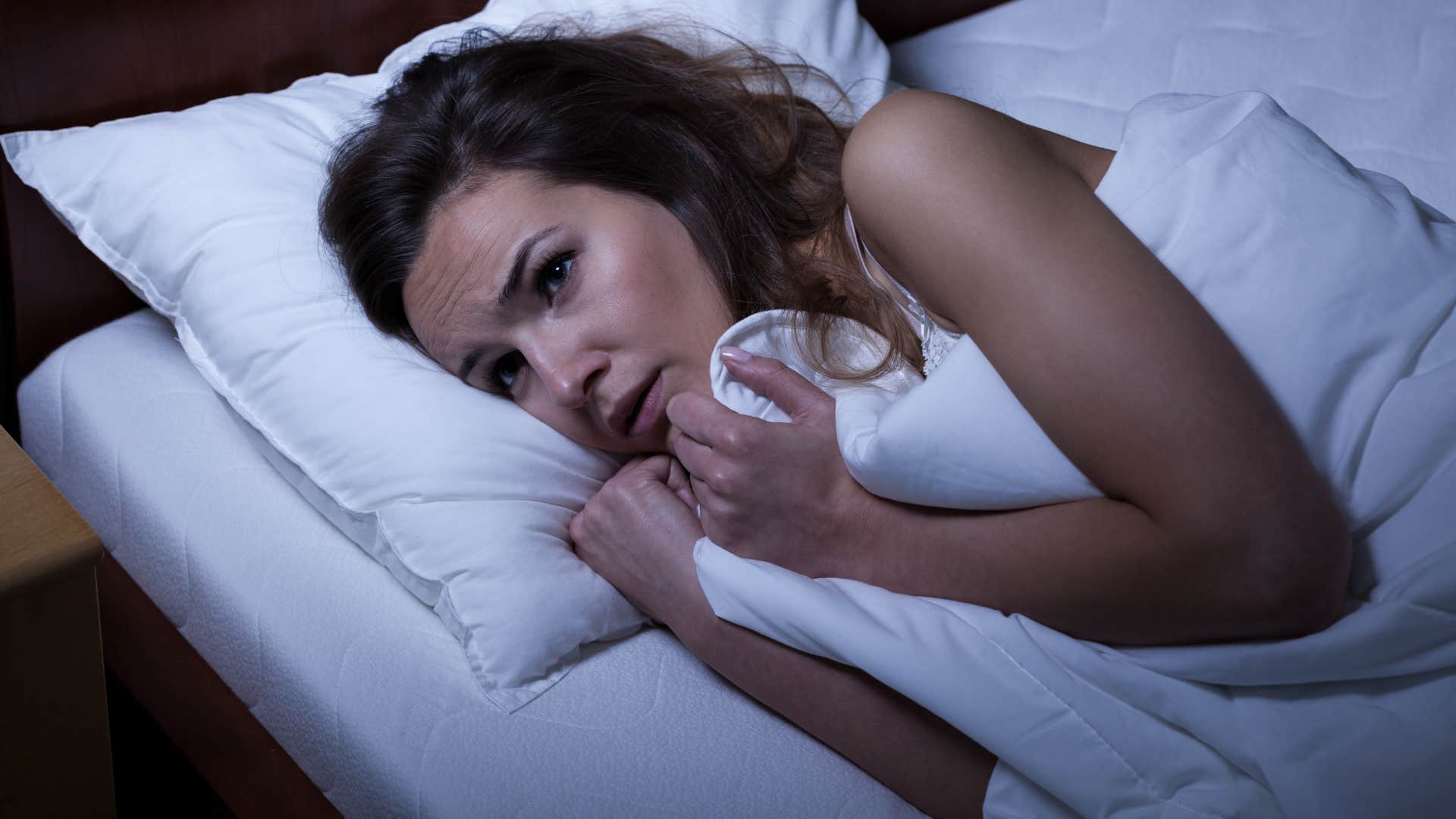 KatarzynaBialasiewicz from Getty Images via Canva
KatarzynaBialasiewicz from Getty Images via Canva
People who feel unsafe, both physically or emotionally, at home often have unsuspecting quirks that reveal their internal discomfort. For example, someone who needs to sleep facing the door of their bedroom might be hypervigilant and feeling emotionally unsafe, even if there are no tangible threats at home.
If they’re stuck in fight or flight mode, their nervous system is entirely dysregulated, increasing stress and anxiety in their everyday lives, even when they’re not actually in danger. It’s a survival mechanism that puts their body and mind in hypervigilant states, but truly only ends up exacerbating their internal discomfort and fear.
Advertisement
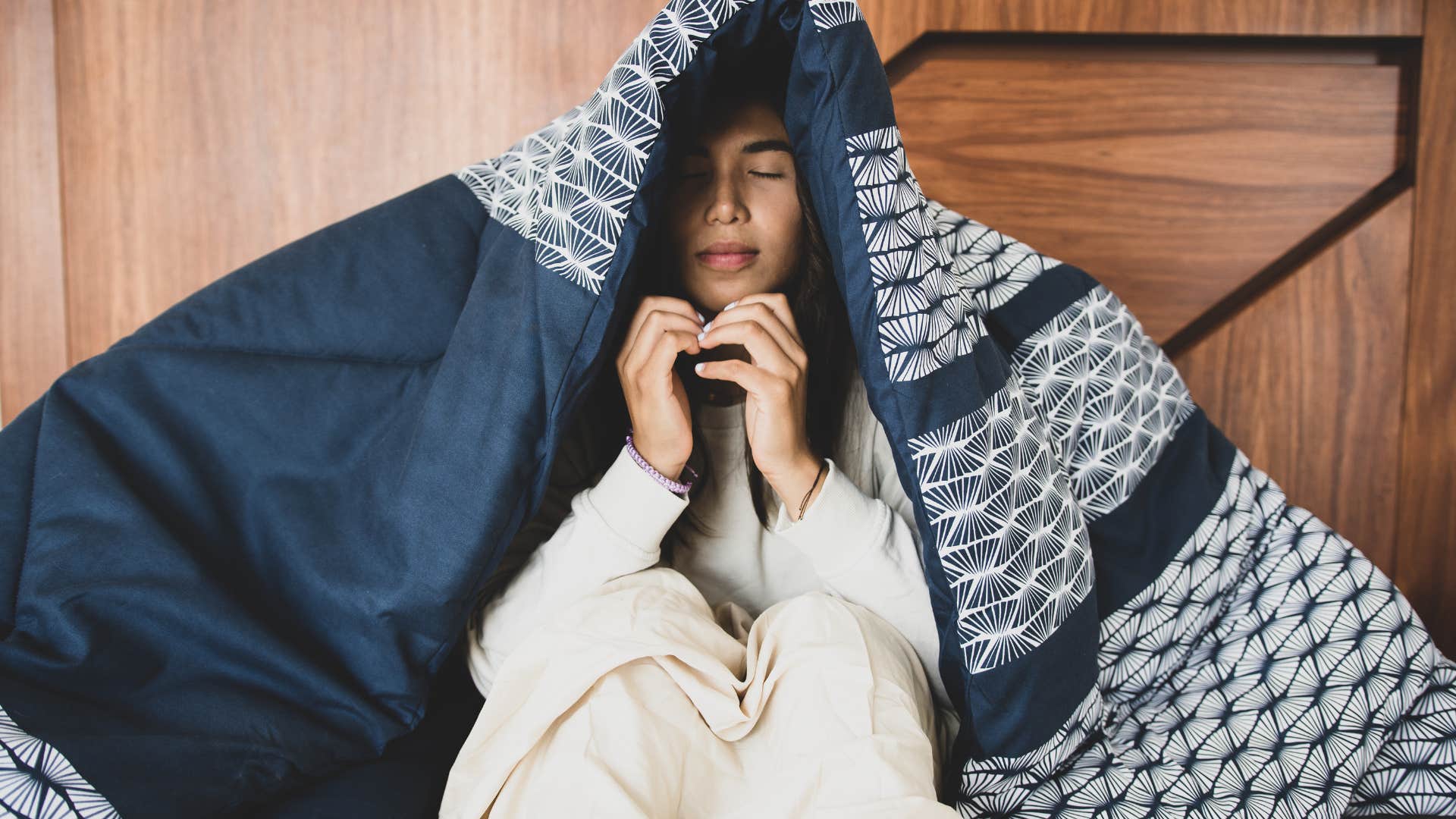 Los Muertos Crew from Pexels via Canva
Los Muertos Crew from Pexels via Canva
If someone has a ton of pillows or a weighted blanket that they regularly sleep with in their bedroom, it could be a sign that they’re living in a chronically stressed or hypervigilant state. They need these tools to give them a sense of safety at home, even if the root of their anxiety is internal and emotional.
Thankfully, according to a study published in the Journal of Psychiatric Research, using a weighted blanket at night has actually been shown to reduce anxiety symptoms and stress in the body at night. So, if you notice these things in someone’s bedroom, they may feel more emotionally unsafe than they’d like to admit, but at least this is a coping mechanism with proven benefits and relief.
Advertisement
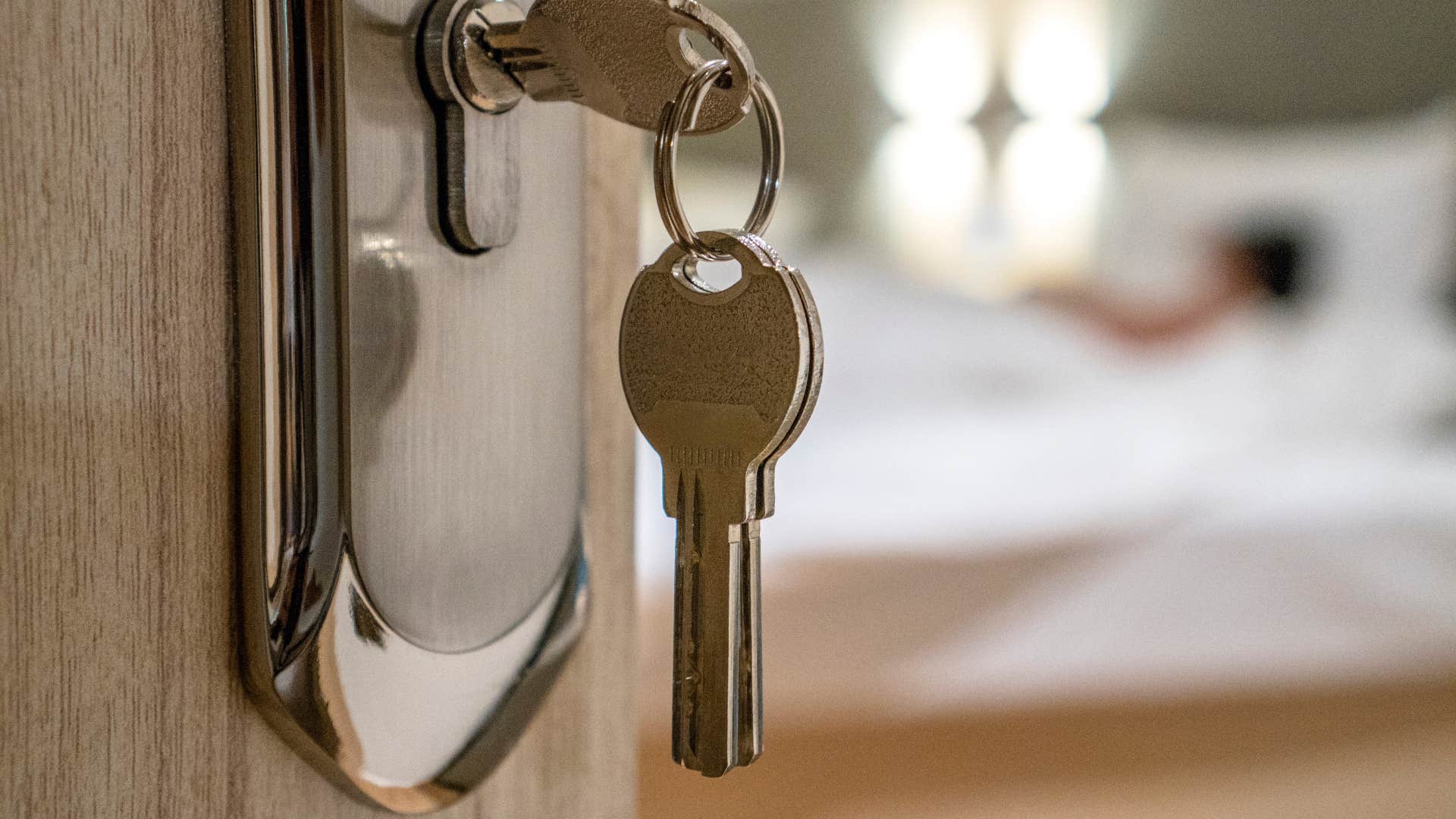 yipengge from Getty Images Signature via Canva
yipengge from Getty Images Signature via Canva
Of course, you should be shutting and locking your front door every night for obvious safety reasons, but if you notice someone is always vigilant about locking their bedroom doors, they feel more unsafe than they want to admit.
While there are many reasons why someone may develop this habit, one study published in Frontiers in Psychology argues that people with past unresolved trauma often experience struggles with emotional intelligence and regulation later in life. So, if they’ve had a stressful day at work or are constantly battling internal anxieties, chances are the coping mechanisms they use, like locking their door or sleeping toward the entrance of their bedroom, are less effective and comprehensive for actually healing their fears.
Advertisement
 Alfred Hernández Ríos via Canva
Alfred Hernández Ríos via Canva
Consistent nighttime routines often help to support general well-being, and they’re also incredibly important for emotional regulation and general emotional health. The more adamant a person is about protecting and creating space for healthy sleep routines, the more regulated, balanced, and happy they’ll feel during the day.
So, if you notice evidence that someone lacks bedtime rituals in their space, chances are they feel more unsafe and unregulated than they want to admit.
Advertisement
 Africa Images via Canva
Africa Images via Canva
If someone doesn’t have the emotional motivation or energy to do their basic chores at home, like doing their laundry or putting away their clothes, chances are they’re also struggling with regulating their emotions or dealing with anxiety.
So, if you notice piles of clutter or laundry everywhere in someone’s bedroom, they may feel more unsafe than they want to admit. They’re spending all their brain’s energy and attention on managing their mental health, so other, more tangible responsibilities are going overlooked.
Advertisement
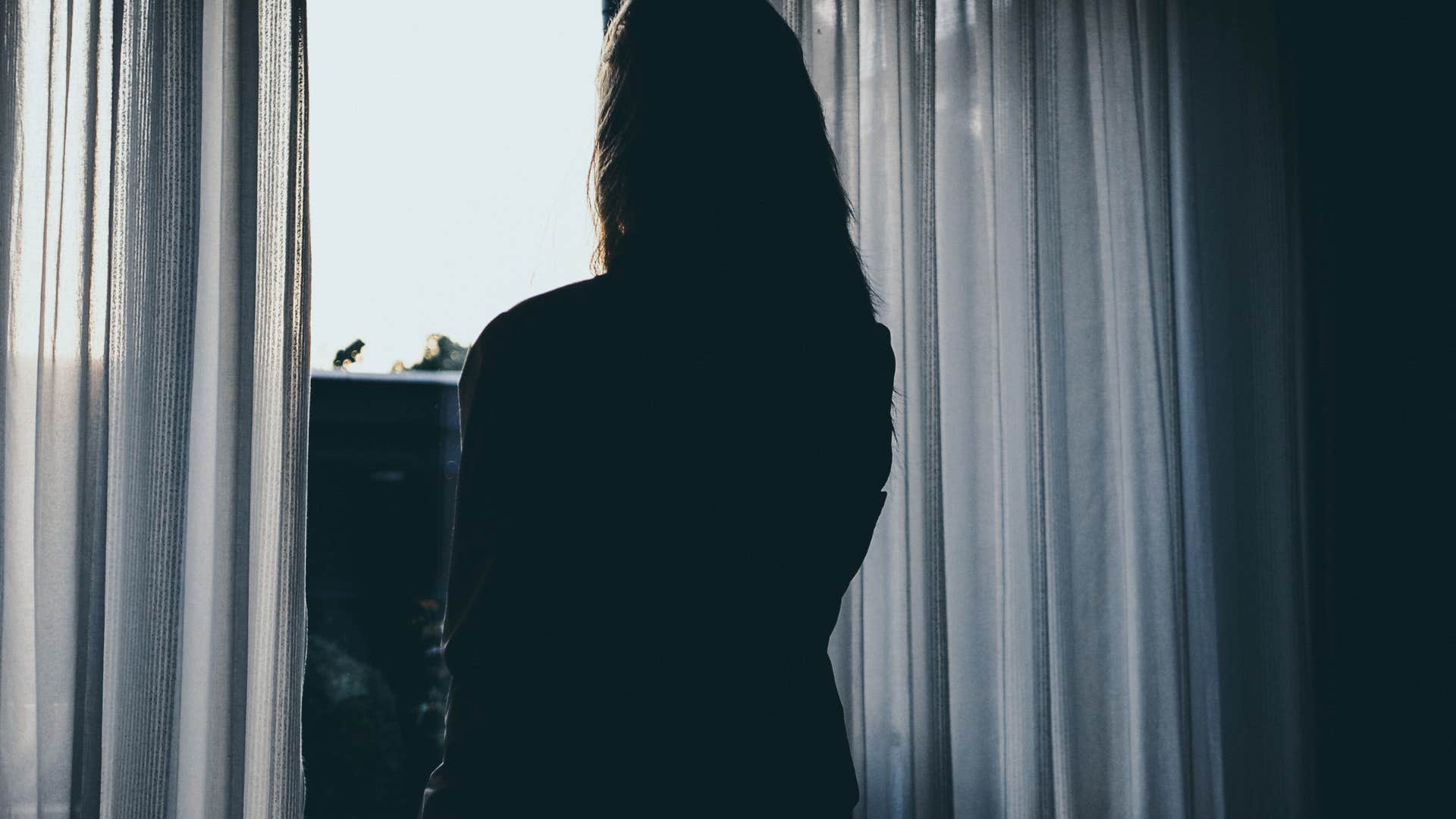 Bas Masseus from Pexels via Canva
Bas Masseus from Pexels via Canva
According to experts from Johns Hopkins, sleeping habits and mental health struggles like depression are inherently interconnected. When you use blackout curtains during the day or struggle with consistent sleep routines, you’re disrupting your circadian rhythm and sabotaging your general well-being.
Of course, there are healthy and productive uses for blackout curtains, but if they’re used to promote unhealthy social isolation habits or poor sleeping patterns for internal comfort, they can do quite the opposite.
Zayda Slabbekoorn is a senior editorial strategist with a bachelor’s degree in social relations & policy and gender studies who focuses on psychology, relationships, self-help, and human interest stories.
Advertisement
Auto Amazon Links: No products found.

This will close in 0 seconds
This will close in 0 seconds